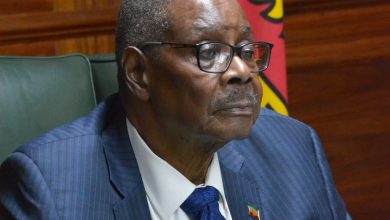Parties commit to health
Major political parties have committed to prioritise the health and well-being of women, children and adolescents in response to demands by civil society organisations (CSOs), health partners and advocates.
The parties made the commitments in Lilongwe on Tuesday and yesterday when Amref Health Africa and other civil society organisations engaged parties to highlight the issues in their manifestos and implementation plans.

The political parties were presented with key demands, including to increase health funding, to reduce maternal, new-born and child mortality, address early marriages and teen pregnancies, and ensure youth participation in decision-making spaces.
Speaking during the meeting in Lilongwe, Malawi Congress Party (MCP) spokesperson Jessie Kabwila said women and children are not an afterthought in the MCP manifesto but are at the centre of it including their health.
“Our manifesto is built around prioritising women, girls and adolescents. Neglecting their health has adverse impacts on governance and service delivery,” she said.
Kabwila highlighted the Tsogolo Fund, a provision in the party’s manifesto, as one of the strategies aimed at supporting children from birth to responsible adulthood.
Democratic Progressive Party presidential adviser on organisation Chimwemwe Chipungu argued that Malawi does not necessarily face a funding crisis, but rather a misuse of available resources which the party intend to fix once they are in government.
United Democratic Front president Atupele Muluzi said that the party’s manifesto focuses on stabilising the economy which will be key to address the challenges the country is facing including increasing funding towards health.
Amref Health Africa country director Hester Mkwinda Nyasulu said the engagement with political parties has allowed CSO’s to establish a platform for accountability and long-term tracking.
“This dialogue has highlighted where each party stands and how they plan to prioritise these issues. It also allows us to follow up after elections with a clear framework to monitor implementation,” he said.
Nyasulu said that although Malawi has made progress such as reducing maternal mortality by 13 percent between 2015 and 2020, the country remains off-track in meeting its commitments to reproductive, maternal, newborn, child and adolescent health.
The meeting also highlighted that Malawi’s health budget allocation, currently at 10 percent of the national budget, remained below the 15 percent Abuja Declaration target.





